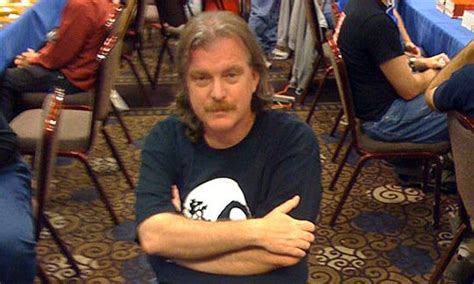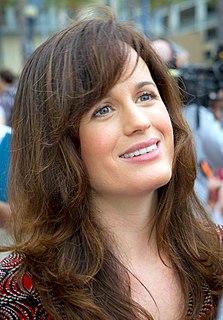A Quote by Seth MacFarlane
The trend today is vampires, zombies, angels, all the stuff that puts me right to sleep. It's too bad because it's so much less interesting than the diversity of stories you can tell with science.
Related Quotes
Kids need to know more than just about unicorns and zombies and vampires. The rhetoric that's coming out is anti-black, anti-Mexico, anti-diversity. [Adults] definitely need to put it in context. I've talked to people who are literally struggling to sleep because they're anxious. Children pick up on that. Talk to your kid. Tell them, "this is what's bothering me." Explain that what's going on is unacceptable.
The zombie threat is made worse by the fact that their victims then turn into the creature that attacked them. This too is similar to other monsters (werewolves and vampires) and also similar to the sub-genre of infection/plague films. In the case of zombies, however, this may carry a greater sense of dread and revulsion: vampires and werewolves can be seen as desirable, potent, intelligent, virile creatures whom one might like -- in some way at least -- to become; a mindless ghoul condemned to wander aimlessly across an empty, ruined earth seems much less attractive.
All stories are true,” Skarpi said. “But this one really happened, if that’s what you mean.” He took another slow drink, then smiled again, his bright eyes dancing. “More or less. You have to be a bit of a liar to tell a story the right way. Too much truth confuses the facts. Too much honesty makes you sound insincere.
There are poets who believe that you shouldn't engage at all in any cause. And there's something to be said for that. Because you don't want to - I think most political poetry is very bad. And it's very bad because you know too much to start with. You have a sense that you're right, and you're trying to tell other people what's right. And I think that's always kind of fundamentalism, and I don't like it.
The very act of story-telling, of arranging memory and invention according to the structure of the narrative, is by definition holy. We tell stories because we can't help it. We tell stories because we love to entertain and hope to edify. We tell stories because they fill the silence death imposes. We tell stories because they save us.
If we ought not to fear mortal truth, still less should we dread scientific truth. In the first place it can not conflict with ethics? But if science is feared, it is above all because it can give no happiness? Man, then, can not be happy through science but today he can much less be happy without it.



































